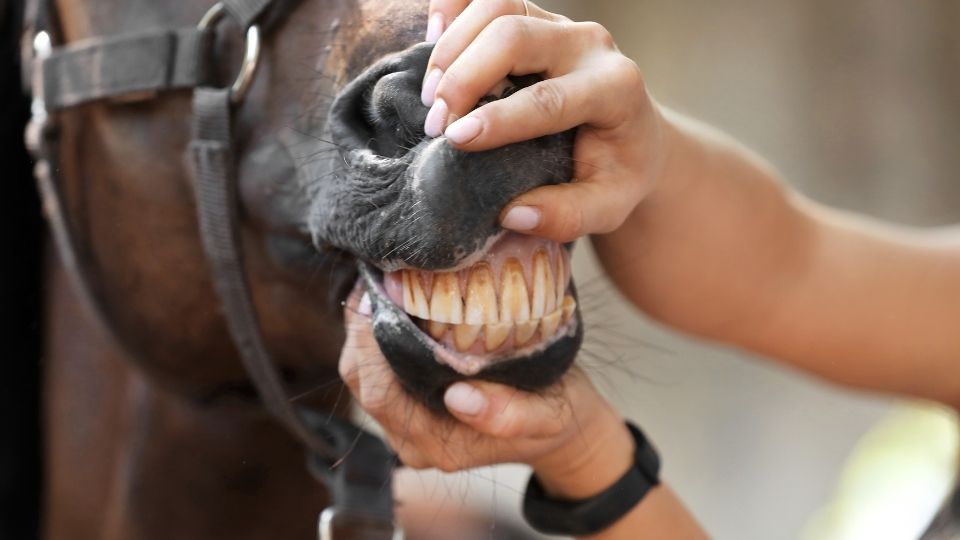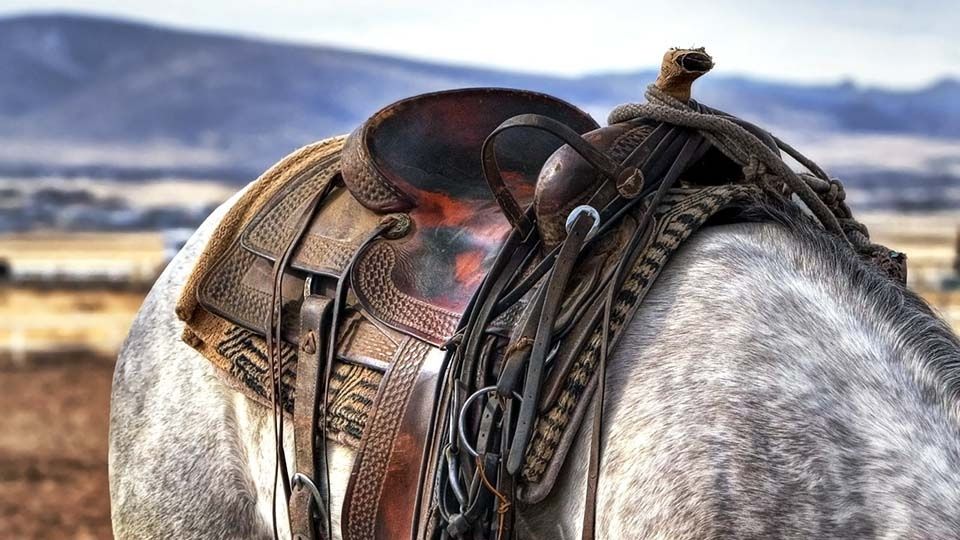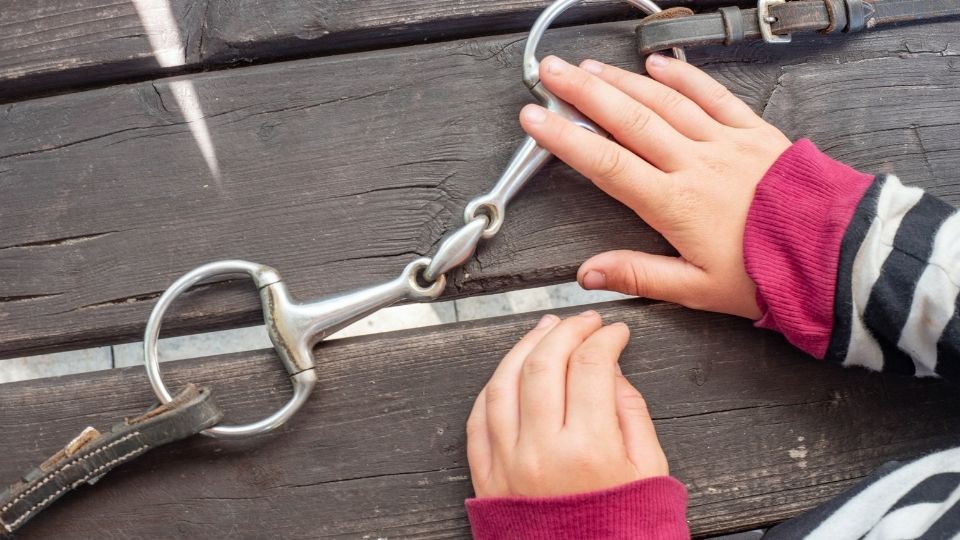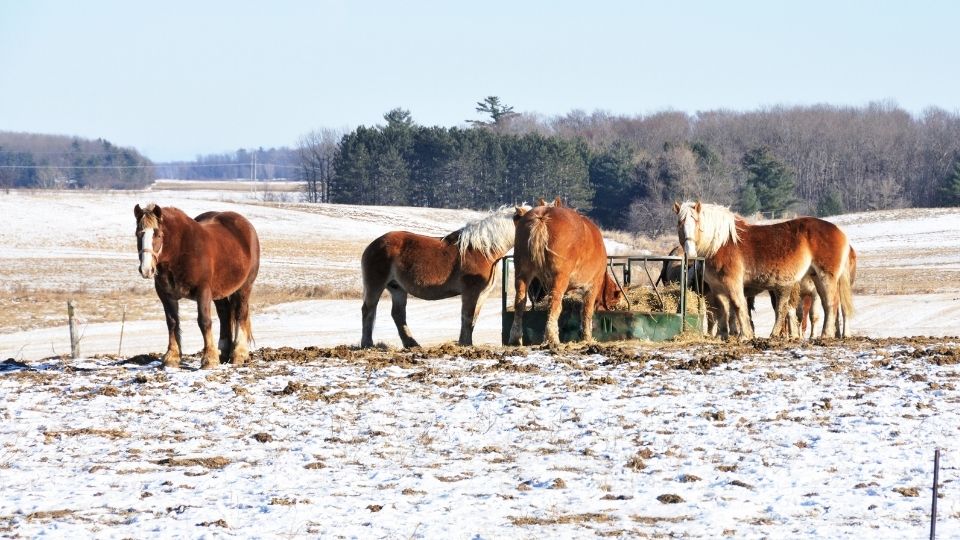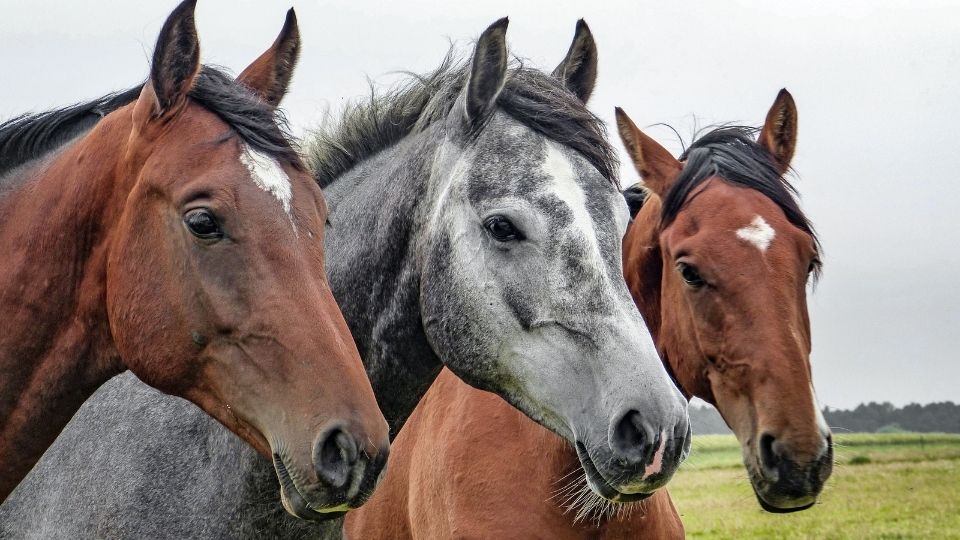Buying Your First Horse
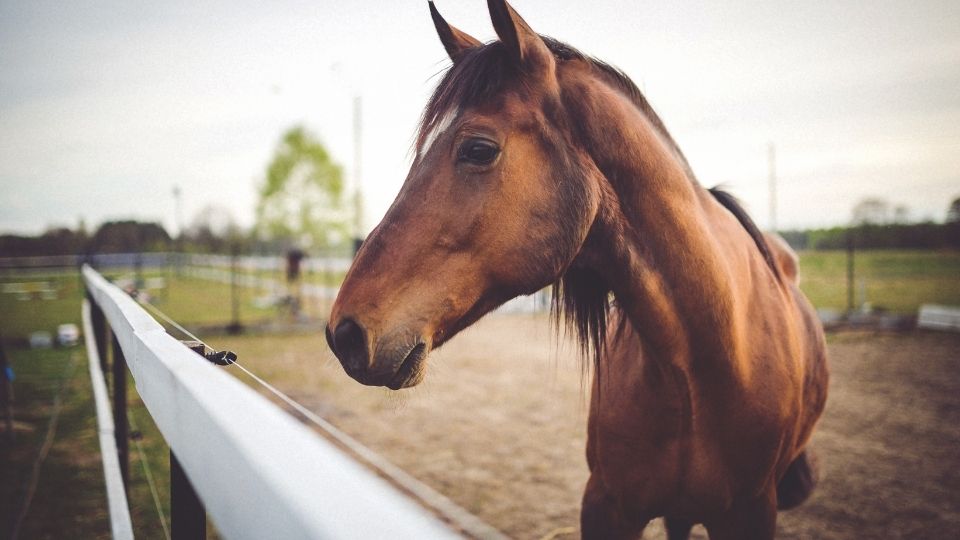 Evaluating a Horse for Purchase
Evaluating a Horse for Purchase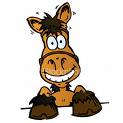
Buying a horse can be quite a task for the first time horse buyer. It is very beneficial for the buyer to have some horse experience prior to ownership, perhaps by working at a stable or by taking riding lessons. Prior experience with horse management and handling will help the new owner become a responsible and educated horse owner. As a first time buyer it is wise to ask a more experienced horse person to help in evaluating potential horses. Some questions that should be considered prior to purchasing a horse include:
- Age and experience of potential new owner
- Type of horse wanted, including breed, sex and ability
- Riding style: English, Western, Trail Riding, Showing, etc.
- Horse care and housing
- Potential costs of horse ownership
- How to locate a horse
- Is a pre-purchase exam important
- Locating a local veterinarian
Age and Experience of the New Owner
Safety should be paramount for the first time horse owner so a more mature and seasoned horse may be what is needed. An enjoyable and safe mount makes riding more relaxing and fun. The level of riding as well as the horse care experience of the new owner should be considered before buying a horse so that the rider will feel comfortable and safe. While a more experienced horse person may enjoy the challenge of working with a less finished horse; a young, inexperienced rider should not be paired up with a young, inexperienced horse. A small rider may not be comfortable with a very large horse and may be better suited to a large pony or small horse. Avoid buying a young horse for a young rider and follow a general rule of the younger the child, the older the horse.
Breed and Sex
The first time horse owner should decide in advance what type of horse is wanted. Is there a specific breed or sex of horse in which the new owner is interested? Some breeds tend to be more high spirited while others are known for their calmness and ease of handling. Geldings tend to have a more level mind while some mares can be difficult to handle during estrus due to hormonal changes. Stallions should never be considered for the novice owner as they can be very difficult to handle and unpredictable in their behavior. In the case of youth, even experienced youth, purchasing a stallion is normally not desirable as many associations or competitive events prohibit anyone under the age of 18 from handling stallions at shows or other events.
Riding Style or Intended Use
The style of riding; western, huntseat, saddleseat or dressage should be determined prior to purchasing the horse and associated tack and equipment. If the buyer would like to compete in shows or other competitive events, they should consult the rules of the respective associations to determine what horses are eligible to compete in that event. For most open shows a particular breed of horse is not essential. However, if you wish to compete in specific breed association shows, only registered horses should be considered. If competition in breed shows is desired, be sure to investigate which breeds are popular and routinely hold shows in your area. It makes little sense to purchase one breed of horse for show if the closest show is only held once a year 500 miles away. If the interest is more recreational, then most any breed is appropriate and a variety of tack is suitable.
Horse Care and Housing
A decision must be made ahead of time as to whether the horse will be boarded at a commercial stable or kept at your own property. It may be easier for the new owner to board the horse at a local stable and learn how to care for the horse while in a supervised environment with professional assistance. For the first time horse owner there are many benefits to boarding at a nearby stable. These may include:
- Daily professional horse care in a well designed horse facility
- Riding lessons under professional guidance
- Other horse owners to ride with and learn from
- Riding ring or trails as needed
- Being free to travel away from home without concern for horse’s care
- The new owner does not have the hassle of locating trusted sources of feed, hay, farrier or veterinary services, etc.
 The benefits for the new horse owner of housing the horse at home are less numerous, but include:
The benefits for the new horse owner of housing the horse at home are less numerous, but include:
- Unrestricted access to the horse at any time
- Less cost than boarding
- Complete control of the daily care of horse
No matter where you intend to keep your horse, make sure the facilities that you want are there. If you intend to ride out on trails without trailering, make sure there is access to trails. If you want to prepare for shows, make sure that you have what you need for that; i.e., riding ring, obstacles, jumps, etc.
Cost of Horse Ownership
A new horse owner must prepare for the costs associated with ownership. Buying the horse is usually the least expensive part of horse ownership. Depending on the local area and situation, one may expect to spend at least $1,000 to $2,000 per horse per year on feed, health care, equipment, farrier and veterinary services over and above boarding along with other miscellaneous expenses. Be sure to investigate the cost of horse ownership in the area before making such a large and long term investment as a horse owner. Visiting with the county Extension agent or local horse professionals can assist with establishing a cost range. Setting a budget range before going horse shopping will help keep prices in check and avoid wasting time looking at horses well outside your price range. Additional costs associated with ownership include:
- Purchasing tack, saddle pads and equipment including brushes, hoof pick, halter, lead, feed pans, water buckets
- Barn or shelter for protection from harsh weather, if kept at home
- Tools for maintaining the stall and barn area stall bedding
- Fencing that is horse safe, along with maintenance of fencing
- Hay and grain (if necessary), along with a means to haul these products or compensate someone to haul them
- Truck and horse trailer
- Horse insurance, for a more valuable horse
If the horse is to be used for competition, additional costs may include:
- Trainer or instructor fees
- Show fees, class entries, stalling fees, etc.
- Show clothes and tack
- Show essentials including coat conditioner, shampoo, mane/tail conditioner, hoof polish, bagged bedding, blankets or sheets, etc.
- Traveling expenses (fuel, meals, hotel, etc.)
- Association membership fees
Locating the Horse
Many good horses can be found at reasonable prices if one knows where to look. Enlist the help of an experienced horse person in your community. If you need help finding one consult your local county Extension agent, local 4-H club leader, state horse specialist, or a horse breed association for a referral to a reputable horse breeder/trainer in the area. Many breed associations have a list of qualified, reputable professionals that could help in the quest. The local boarding and riding stable that gives lessons may have a variety of mature, well broke horses available for sale. Auctions may not be the place to begin your search without a professional’s advice and assistance in viewing the sale lots. Many good quality horses pass through auction houses, but also so do horses with problems. If the buyer wants a show horse then attending shows and viewing horses in competition will be very beneficial. Many horses are listed in newspaper classifieds or horse related publications by private individuals.
A high priced horse may not suit the buyer’s needs and it may be more difficult to recoup the purchase price upon resale. It can be beneficial to start out with a lower priced horse and move up as the need arises. However, don’t buy a $550 horse that does not meet your specific needs when a $2,500 horse will. Potential owners must realize that “you get what you pay for.” Much like buying a car, the buyer makes a substantial and long-term investment when buying a horse. And like options on a car, the $2,500 horse with more “options” that meet your needs will make for a more satisfied, safe and happy owner.
Don’t feel rushed or pushed into purchasing a horse even if it seems to be a great deal. Make sure that the horse is the right horse for you.
Final Considerations Before Purchasing
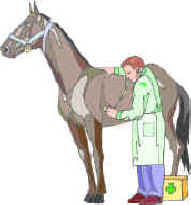 A common cause of rider injury or loss of interest in a horse by new owners may occur when the horse is not properly matched to the rider’s needs during this initial selection phase, so make sure that you do your homework and carefully consider the purchase decision.
A common cause of rider injury or loss of interest in a horse by new owners may occur when the horse is not properly matched to the rider’s needs during this initial selection phase, so make sure that you do your homework and carefully consider the purchase decision.
A pre-purchase exam performed by a licensed veterinarian is the new horse owner’s best prevention against buying a “lemon” as far as horse health and soundness, but may not be a complete evaluation on temperament, training and skills level of the horse. A pre-purchase exam may expose underlying issues that the buyer is not aware of and prevent the purchase of an unsuitable horse. Once the exam is complete the veterinarian will provide the prospective buyer with his/her professional opinion on the horse’s health and soundness. As the buyer, you should ask the seller for the previous vaccination, de-worming and health records.
Try It Out
A prospective owner should consider buying a horse from someone that will allow them to take the horse on a short term lease. This will allow the prospective buyer some time to work around and ride the horse to determine if they are compatible. Don’t just assume because the previous owner can ride the horse that everyone can ride it and get along with it. A typical lease will run two to four weeks during which the prospect buyer is responsible for care and health of the horse. Should the horse become injured or develop a problem, it is the lessee’s responsibility to cover veterinary expenses, and should you decide to return the horse, it must be returned in the same or better condition than it was received. This is time well spent in determining if the horse is the one for you. If a trial period is not available, the buyer should view the horse in its natural surroundings unannounced several times.
Summary
After considering the initial cost and long term investment required for horse ownership, if you decide against purchasing a horse, realize that there are suitable alternatives to owning your own horse. These include volunteering at local stables, assisting with youth or breed association horse events, or taking riding lessons. All of these let you experience the joy of working with horses without the long term commitment.
Horse ownership can be very rewarding with the appropriate horse and necessary budget. Time spent preparing for horse ownership is well spent if it allows for more enjoyment with the horse. Buying and maintaining a horse is a major commitment. The prospective horse buyer should consider the financial commitment as well as the long term commitment to the well being of the horse. If the commitment is there, then considering the points listed above can help make the purchase of your first horse a pleasurable experience that lasts for many year to come!
Some references and Web sites that you find helpful as you begin your search for a horse include:
References
- Evans, J.W. 1981. Horses. San Francisco: W. H. Freeman and Company.
- http://horses.about.com/od/buyingyourfirsthorse
For some breed specific information concerning professionals in your area:
Published October 2007
Utah State University Extension
Peer-reviewed fact sheet
Authors
Dr. Patricia A. Evans, Extension Equine Specialist, Utah State University; Dr. Jason L. Turner, Horse Specialist, New Mexico State
Related Research


